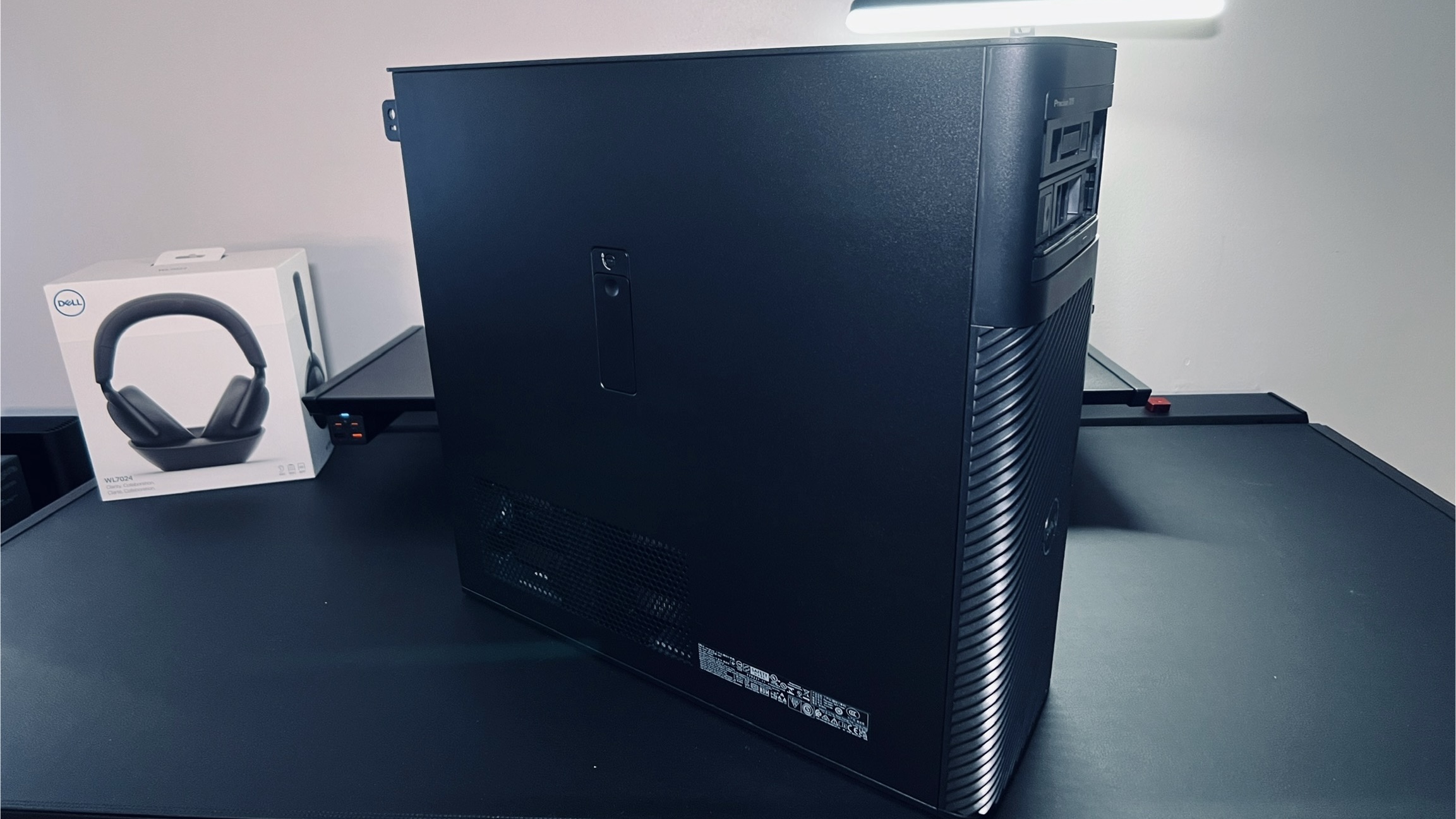
In a world driven by technology, with GenerativeAI and creative work growing in demand daily and the need for powerful servers in tech companies worldwide, Dell continues to stand strong as a pillar in the computing community. High-quality computers to handle the growing computing demands have never been more critical.
The Precision 7875 Tower Workstation is an incredibly versatile machine. Its base price of $3,299 can be scaled up to a fully loaded $38,904.67 beast of a machine. Unlike even the best business computers I have experienced, this workstation can handle anything thrown at it and more.
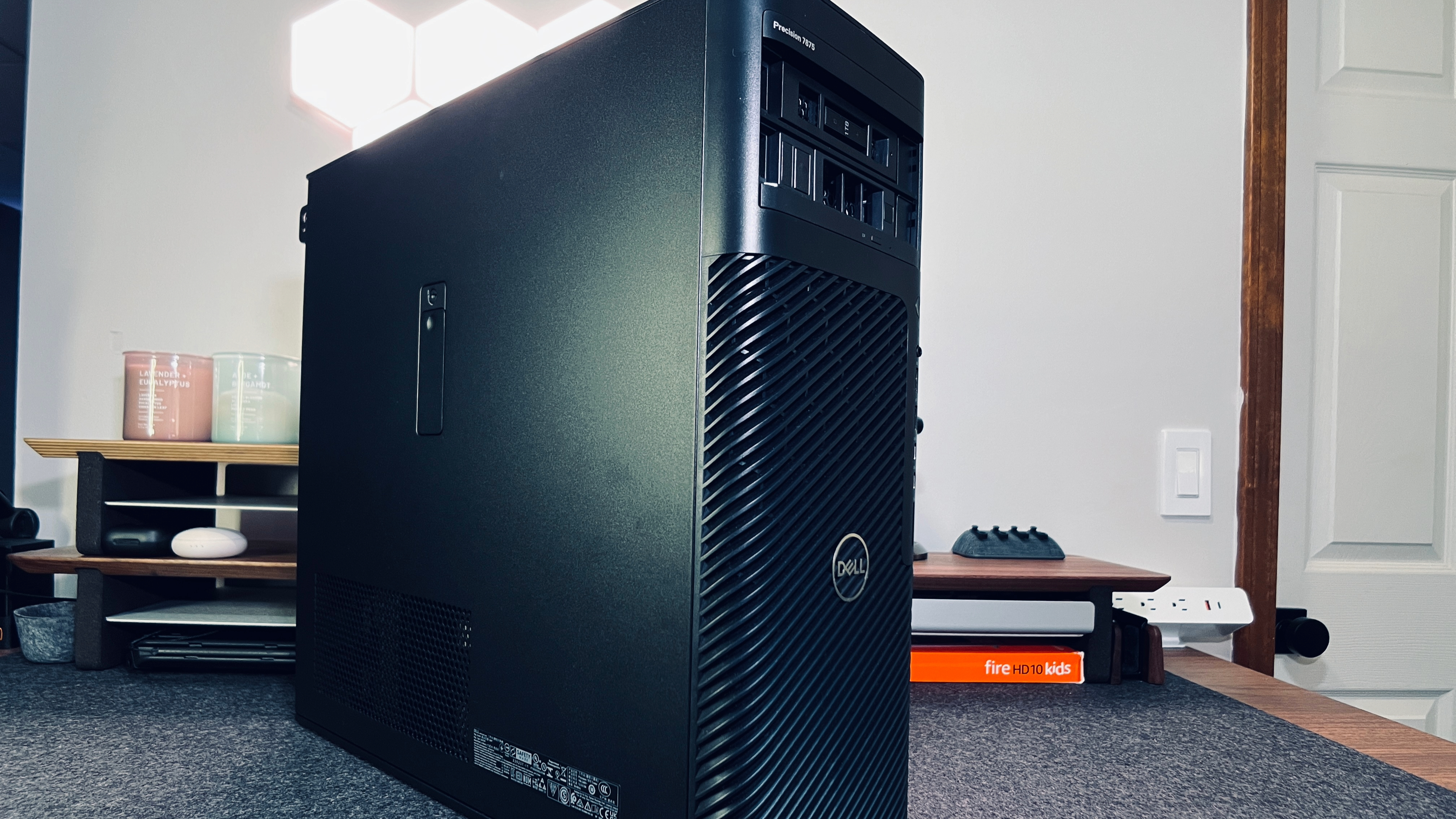
Dell Precision 7875: Unboxing & first impressions
While I was initially unboxing this workstation, it was a powerhouse. I immediately noticed the sheer weight of the computer and quickly recognized the understated yet professional design of the case. It's not flashy and loud like what is trendy in the custom PC or gaming PC world, with RGB lights everywhere and gaudy components. This is a professional workstation, and it looks sleek, minimal, and functional.
The second big thing I noticed was dual (NVIDIA® RTX™ 6000 Ada, 48 GB GDDR6, 4 DP) graphics cards. Third, I saw an intense power cable in both cable thickness and plug. Most computers, laptop bricks, and monitors (except Apple) all utilize standard C13 IEC power cables. However, this Precision 7875 Tower Workstation uses a C19 connector and C20 inlet to allow for higher amperage and, therefore, more power to the computer.
After booting up, I was reminded that my Precision 7875 Tower has been equipped with Windows 11 Pro (currently version 23H2) and that it has 128GB of RAM installed to work hand in hand with the AMD Ryzen Threadripper PRO 7995WX (96-Cores).
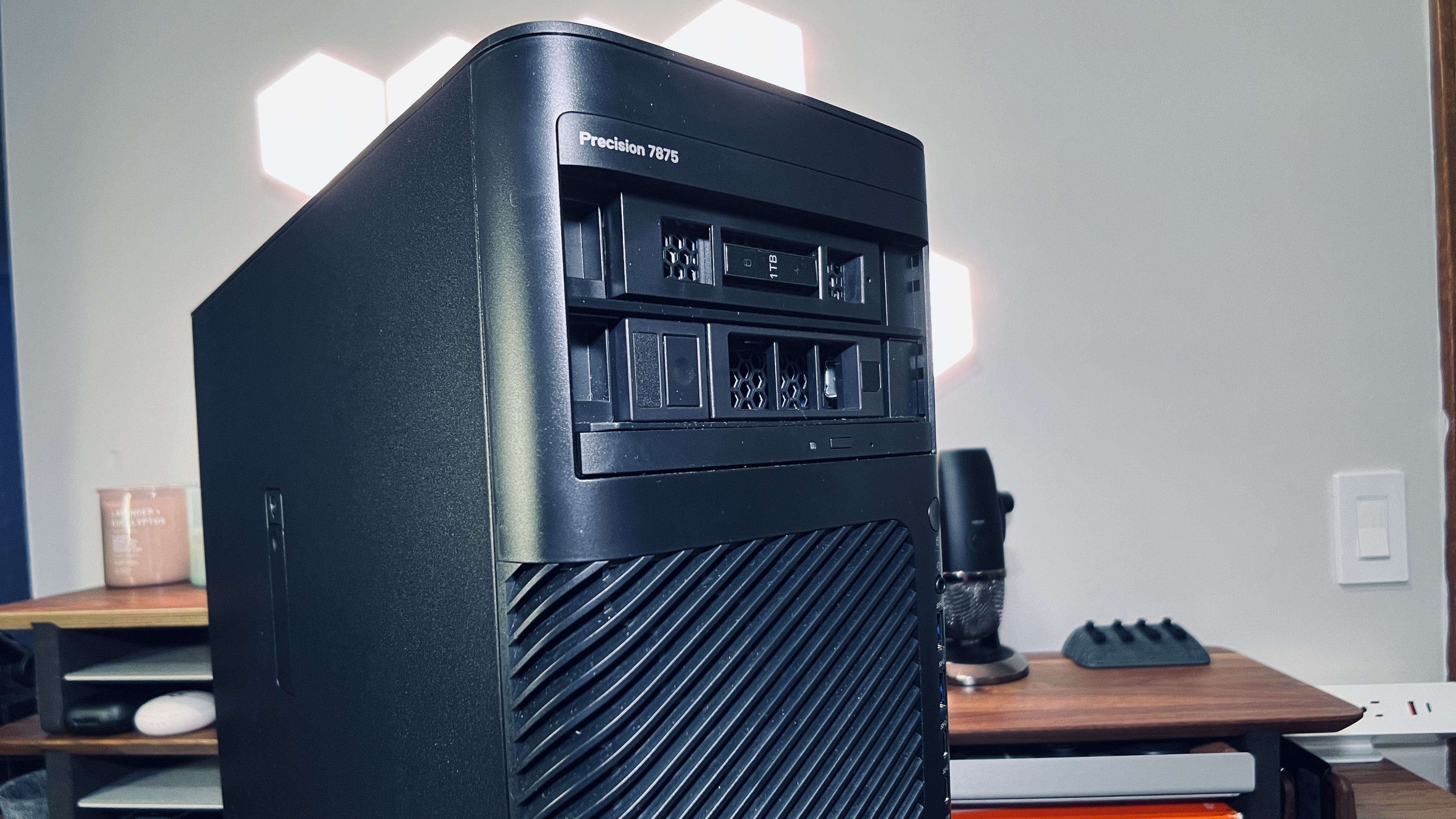
Dell Precision 7875: Design & build quality
As I briefly mentioned, this workstation is simple yet robust. It's well-built, has excellent ports, and is a professional workhorse just by looking at it. If looking directly at the front of the unit, the left side has a panel that can be removed to expand to utilize the six expansion bays quickly. There are also two SATA/M.2 Flex bays on the front of the tower, a place for a slim optical drive, and a handful of USB-C and USB-A ports that are all USB 3.2, plus an SD-Card slot, power button, hard-drive activity light, and a headphone and microphone combo port.
As Tested
Processor: AMD Ryzen Threadripper PRO 7995WX (384 MB cache, 96 cores, 192 threads, 2.5GHz to 5.1GHz, 350 W)
RAM: 128 GB: 8 x 16 GB, DDR5
Storage: 1 TB, M.2, PCIe NVMe, SSD
Graphics: Dual NVIDIA® RTX™ 6000 Ada, 48 GB GDDR6, 4 DP
Operating System: Windows 11 Pro
On the back, I was thrilled that my unit had some expansion ports filled. With those expanded ports, my Precision 7875 has a power port (C20 Inlet for 1350 W PSU), an audio jack, two RJ45 ethernet ports on the top (1 GB and 10 GB), two more 10GbE NIC ethernet ports built into the Intel X710 network card, three more USB-C 3.2 ports, three more USB-A 3.2 ports, and eight display ports split between two graphics cards.
Though this computer is an absolute beast in components, ability, ports, and power, it is still a standard-size desktop tower. All components are relatively easy to navigate around and expand, which is more than I can say for some competitors.
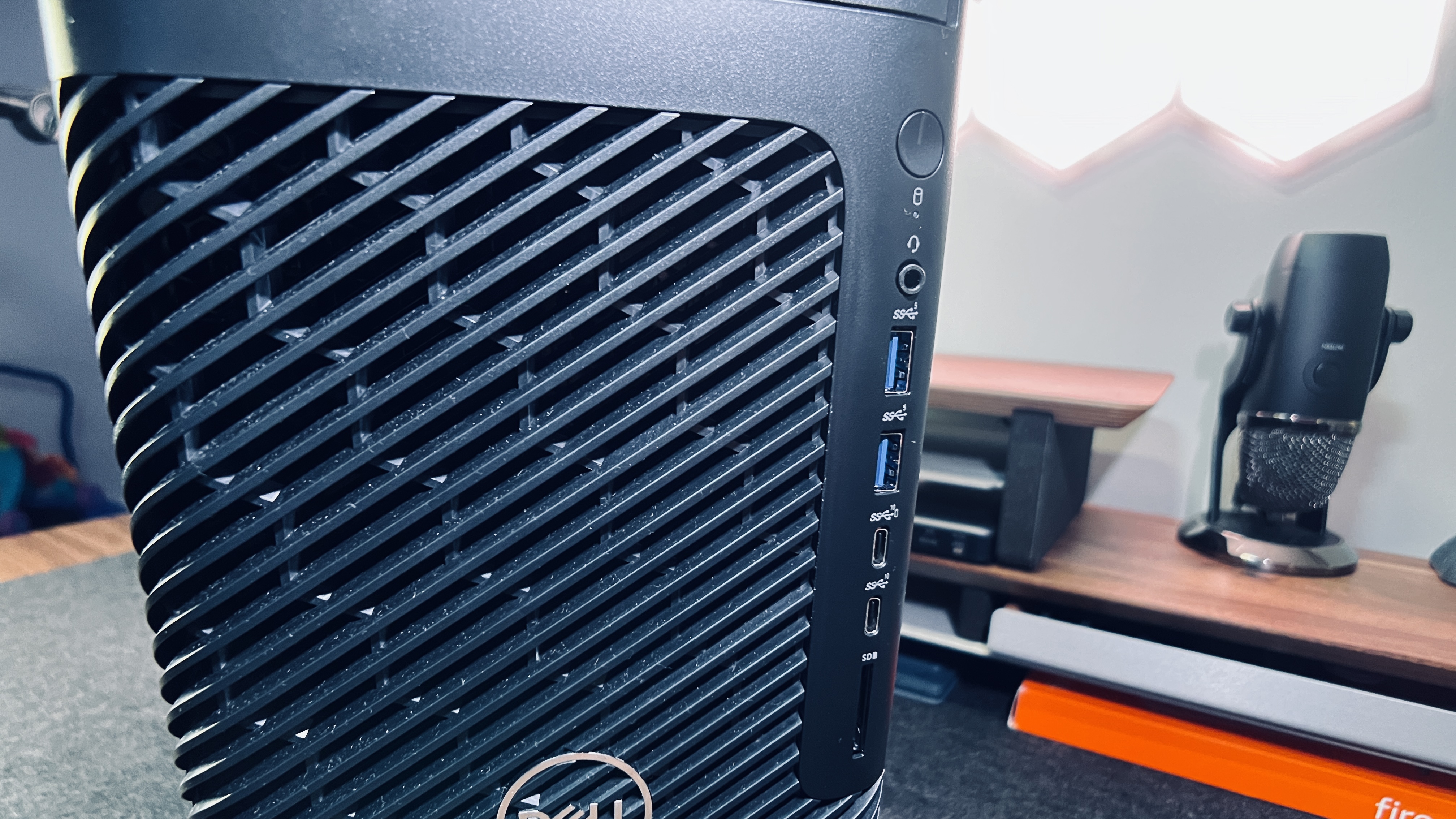
Dell Precision 7875: In use
While testing the Dell Precision 7875, I attempted to run every benchmark I could throw at this machine - I wanted to know if it really was one of the best workstations or were appearances deceptive? Ironically, several tests I use to benchmark PCs failed due to too many cores. After fiddling with the number of cores to allow PCMark and others to use, I finally got some testing done.
I noticed right away that even while being tested, it takes quite a bit to get the Precision 7875 to break a sweat. During the entire testing process, I barely even heard the fans kick on. Now, granted, if I were utilizing this in its intended purpose to be my machine to work with GenerativeAI, intense programming, or creative apps for an extended period, I might have gotten this computer to give me more than what felt like a mere sigh, but that's impressive in and of itself.
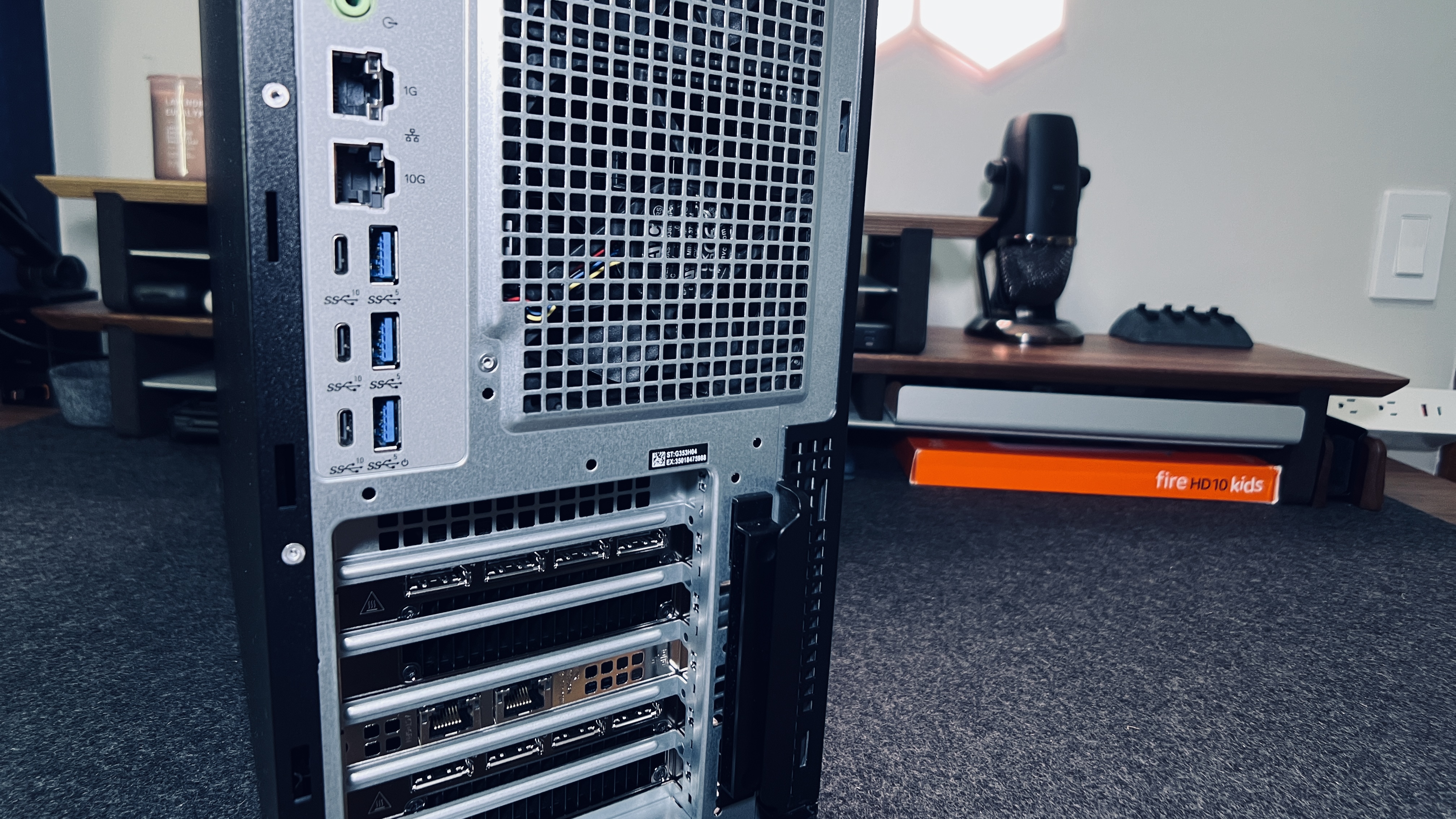
Navigating around applications, web browsing, working on documents, and other daily admin tasks are an absolute breeze. Even jumping back to other high-powered computers I am testing, they feel slow after working on the Dell Precision 7875. The port offering is incredible, and I appreciate that I can use this computer vertically or horizontally due to the rubber feet that Dell has included all around the case.
Another huge component of this computer's ease of use is that it has just about everything I could need already built in. It has a high-speed Wi-Fi module, an SD Card slot, a large number of USB-C and even USB-A ports, an absurd number of Display Ports, headphone jacks, plenty of Ethernet Ports, and even a disk drive, not to mention how helpful it is to have onboard storage that I would have to work hard to fill.
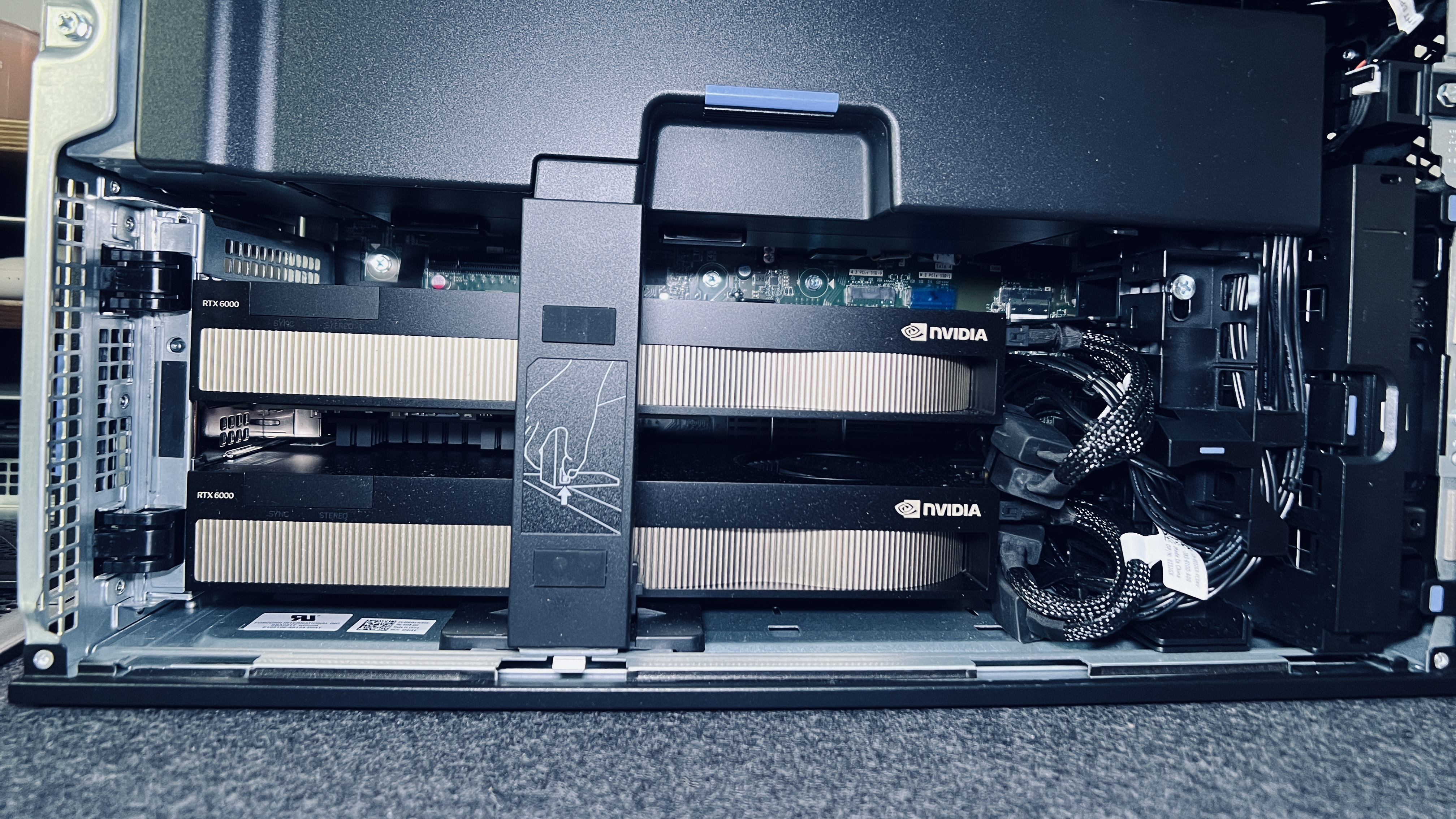
This computer is designed for those who need a high-powered, best-of-the-best computer that can handle the most demanding applications and workflows.
Dell Precision 7875: Final verdict
The Dell Precision 7875 is a fantastic option for professionals who need a robust and reliable workstation. Dell engineered it to handle the most demanding programs and workflows, making the expensive investment worth the price for those who require unmatched performance and dependability.
Yes, it is not for everyone; it may not even be for most people. However, if you are a part of the demographic that needs the best regarding your choice in Windows-based workstations, you should check out the Dell Precision 7875 Tower and try kitting it out to fit your needs and wants.
We tested the best business laptops - and these are our top picks for a productivity boost







